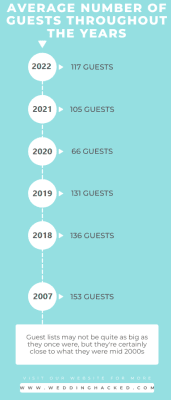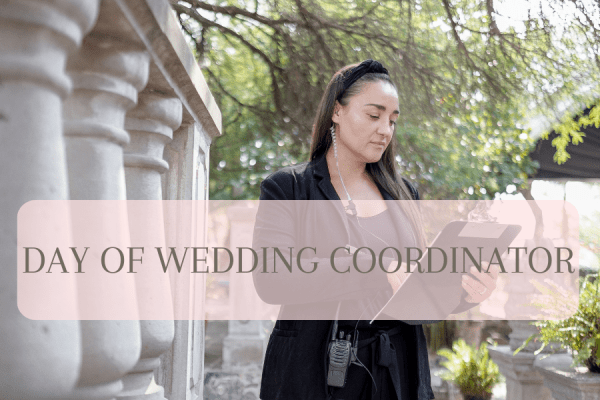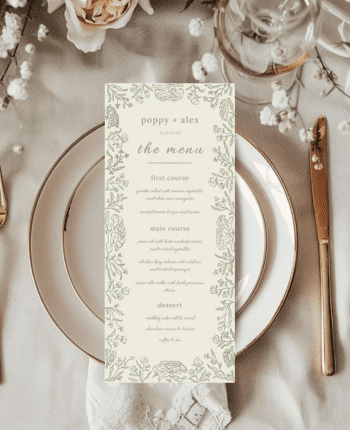What Is A Good Wedding Budget? #Answered

When it comes to planning a wedding, one of the biggest questions couples face is: what is a good wedding budget? Setting a budget for your big day is essential to ensure you don’t overspend and end up in debt.
What is a Good Wedding Budget?
A good wedding budget is one that is affordable and realistic for you and your partner. It should take into consideration your income, expenses, and financial goals. The size of your budget will depend on various factors, such as the number of guests you plan to invite, the type of wedding you want, and your location.
How to Determine Your Wedding Budget?
Creating a wedding budget can feel overwhelming, but breaking down the process into clear steps can make it more manageable. Here’s a detailed 10-step plan to help you figure out what your wedding budget should be:
Step 1: Define Your Priorities and Vision
The first step is to sit down with your partner and have an open and honest discussion about your finances. Consider your income, expenses, and savings, and determine how much money you can comfortably allocate to your wedding. Before crunching numbers, determine what aspects of your wedding are most important to you and your partner. Do you value an extravagant venue, stunning photography, or a lively band? This will guide your budget allocation.
Step 2: Research Average Costs
Research the average costs of weddings in your area. This will provide a baseline to help you estimate expenses for different elements, such as venue, catering, photography, and more. Different areas have different costs associated with them, so keep this in mind when choosing a venue. For example, a wedding in a big city may cost more than a wedding in a rural area.
Step 3: Identify Funding Sources
Identifying funding sources is a vital step in crafting your wedding budget. It involves understanding where your financial support will come from, whether it’s personal savings, contributions from family, or a combination of sources. As you allocate funds, consider using credit cards strategically to accumulate points or rewards that can offset honeymoon expenses. By responsibly using credit cards for wedding expenses and paying off balances promptly, you can leverage points towards flights, accommodations, or other honeymoon luxuries. This innovative approach to funding can turn your wedding celebration into the launchpad for an unforgettable honeymoon adventure.
Step 4: Determine Guest Count

Estimate your guest count early, as it significantly impacts your budget. More guests mean higher costs for catering, seating, and other essentials. The average guest count has changed over the years- from peaking in at 153 guests in 2007, to dipping to 66 in 2020 due to Covid 19. In 2022, the average guest count was 117 and in 2023 is trending to be close to 120.
Read More: How Many People Should I Invite To My Wedding? [Questionnaire]
Step 5: Allocate Percentages
Divide your budget into percentages for each category (e.g., venue, catering, attire). Use industry averages or allocate more to areas that matter most to you.
Typical breakdown
We suggest allocating your wedding budget expenses in the following ways
Venue, Food and Drinks: 50%
Ceremony: 7%
Decor: 15%
Photography/Videography: 15%
Music: 5%
Wedding Dress/Tux: 8%
However, you can and should adjust these percentages based on your priorities.
Step 6: Use a Budget Calculator
Using a budget calculator when determining your wedding budget can be a game-changer. These tools provide a clear overview of your finances and help you allocate funds to various aspects of your wedding. By inputting estimated costs for venues, catering, attire, and more, you can visually see how your budget breaks down. Budget calculators guide your spending decisions, making it easier to stay on track and prioritize what matters most. Whether you’re a meticulous planner or just starting, these calculators simplify the process, ensuring your dream wedding aligns with your financial reality.
Step 7: Create a Preliminary Budget
Based on your allocated percentages, plug in estimated costs for each category to create a preliminary budget. This will give you an idea of how realistic your expectations are.
Step 8: Be Realistic and Flexible
When determining your wedding budget, being both realistic and flexible is crucial. Realism involves setting expectations based on your financial situation and the current costs of weddings. Flexibility entails the ability to adapt your plans as you gather more information. Prioritize your must-haves and be open to alternatives if costs exceed your initial estimates.
Step 9: Get Detailed Quotes
Getting detailed quotes from wedding vendors in advance is a strategic move that can significantly aid in shaping your wedding budget. These quotes provide a clearer picture of the actual costs associated with each aspect of your wedding, eliminating guesswork and potential surprises later on. By obtaining accurate quotes for venues, catering, photography, and more, you can fine-tune your budget allocation and make informed decisions. This proactive approach empowers you to adjust your plans, explore alternatives, and ultimately refine your budget and avoid any surprises down the line.
Step 10: Fine-Tune and Finalize
With actual quotes in hand, fine-tune your budget to align with the numbers. Be prepared to make trade-offs if needed, but ensure you’re comfortable with the final figures.
Concluding Thoughts on Wedding Budgets: Remember, a wedding budget isn’t set in stone, it’s a guideline that can evolve as you make decisions. Flexibility and communication with your partner are key as you navigate the exciting process of crafting your dream wedding while staying within your means.
A good wedding budget is one that is tailored to YOUR financial situation, guest list, location and priorities!
By being honest about your financial situation, allocating your expenses wisely, and being creative, you can have the wedding of your dreams without breaking the bank. Remember to prioritize what’s important to you, and don’t be afraid to get creative to stay within your budget.






